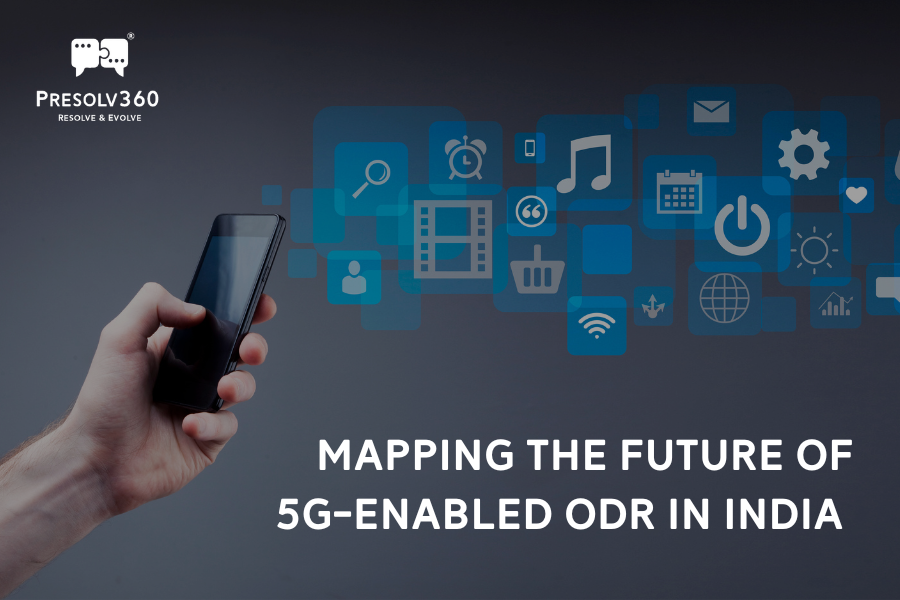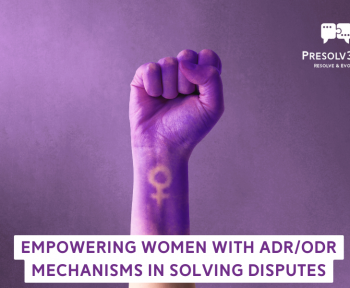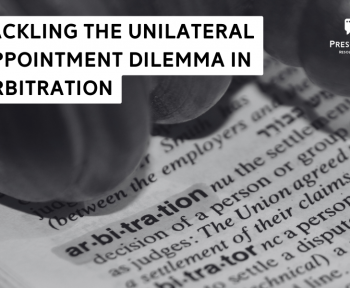A 5th Generation (“5G”) network promises to provide an advanced, fast, reliable, and more widely available experience for users. As a successor to 4G, 5G aims to connect virtually everyone and everything together, including machines, objects, and devices. It can deliver high data speeds with improved efficiency, enabling new user experiences and connecting new industries.
The global market for 5G Internet of Things (“IoT”) technology will likely experience significant growth in the coming years. Some estimates project a value of USD 297.1 billion by 2030 and a CAGR of 70.04% between 2022 and 2030.
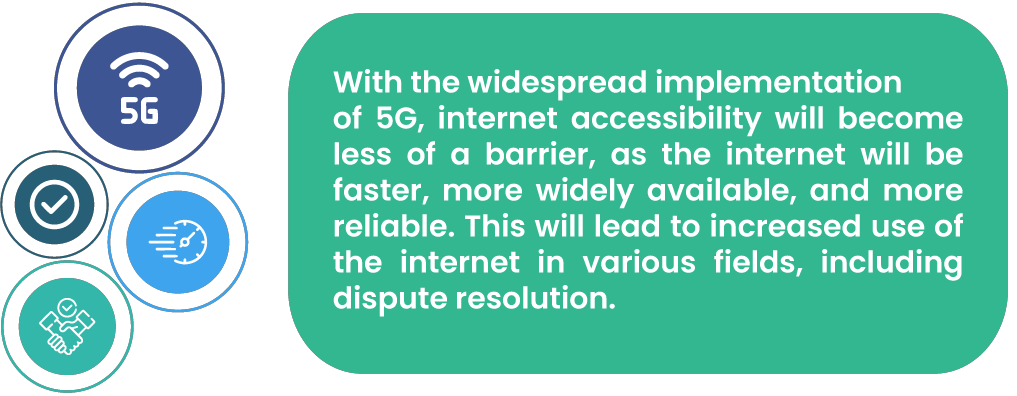
We believe 5G has the potential to significantly enhance the adoption and acceptance of Online Dispute Resolution (“ODR”).
The adoption and utilization of ODR face significant challenges in India currently. One of the primary factors contributing to this is the lack of access to a fast and reliable mobile network. However, with 5G’s advanced features, India has the potential to fully realize the benefits of ODR. Let’s take a look at some of the ways in which 5G can support ODR.
Enhanced security
A key feature of 5G technology is the enhanced security it provides to users in terms of their identities. 5G encrypts user identities and eliminates the possibility of intercepting calls, thus protecting users. This security feature is particularly beneficial for ODR, as privacy and security are fundamental aspects of the process. Parties who engage in ODR typically expect confidentiality about the details of the process. This expectation is often a factor that may decide the choice of forum to resolve disputes. With the added security provided by 5G, it is likely more individuals will consider ODR as a viable option.
In addition to enhanced security for user identities, 5G also offers additional ways to protect user data and privacy. This includes improved threat detection and user productivity, and safe internet access. The combination of these features creates an enabling environment for the use of 5G in ODR. 5G’s improved security and privacy can be an advantage for the parties who engage in ODR. They can have peace of mind knowing that their personal and sensitive information is secure.
Speed and connectivity even in rural areas
One of the major advantages of 5G technology is its ability to deliver peak data speeds of up to 10 Gbps, compared to the 100 Mbps offered by 4G. This, coupled with minimized lag, improved connectivity, and a smoother user experience, even in rural and urban areas, will greatly benefit the implementation of ODR. The use of 5G technology will play a significant role in driving the Fourth Industrial Revolution, as it will enable the connection of a wide range of Internet of Things (“IoT”) sensors and devices, thus automating various processes. This will enhance the overall ODR process, making it more efficient, faster, and easily accessible to people in different locations.
With the high speed and connectivity provided by 5G technology, governments can expand the use of ODR as a method of dispute resolution in various sectors and industries. The increased connectivity and speed provided by 5G will enable more seamless and cost-effective online dispute resolution, thus saving time and money. Additionally, if 5G can successfully connect rural areas, as intended, it will allow for more informed dispute resolution choices by individuals in these areas, making access to justice more readily available.
Lesser latency
Latency can be defined as the amount of time required for a network to transmit information and receive a response from the source. 5G technology promises to offer the lowest latency of any mobile network. The low latency of 5G will enable businesses and industries to digitize their operations by incorporating technology into their procedures. This will provide faster, more efficient, and more reliable communication, which is beneficial for ODR as well as other industries.
The effects of latency cause a delay of up to 50ms and consequently delay the response time. Hence, latency has been identified as a hindrance in the implementation of ODR. However, with the reduced latency offered by 5G technology, there will be many advantages. Video conferencing for ODR using 5G will be more seamless, resulting in fewer delays and interruptions in communication. The video conference will be smoother, with lesser connectivity issues, clearer sound quality, and better video quality. We believe that with an attempt to replace physical meetings with video conferences, 5G will make justice more accessible.
The benefits of 5G in ODR include minimized delays in the process, improved connectivity among all parties involved, and sophisticated infrastructure for dispute resolution. This will create opportunities for individuals seeking justice and drive profitable growth for ODR as a new domain for dispute resolution.
Accessibility
5G projects are receiving significant investments from both government and private entities to make them available in even remote areas. Not only is 5G promised to be available in rural areas, but it is also expected to be offered at lower costs. As rural areas are connected with urban and semi-urban areas, this will bring new business opportunities that will be economically beneficial for people. As business activity in rural areas increases, so too will the number of disputes. In such cases, it is important for parties to have the option to resolve disputes online. ODR will prove to be a useful tool in this regard. Utilizing the 5G network, parties will be able to conduct business and resolve disputes online, which will greatly benefit the country’s economy.
Allied technology development
When speedier internet reaches every household, rural and urban, new business opportunities will arise. The advanced abilities offered by 5G networks will also drive new business models. New services and products powered by IoT may be formulated. Additionally, the use of Artificial Intelligence (“AI”) and Virtual Reality (“VR”) in business models will also be attempted. This will be an interesting diversion from the way businesses currently operate.
An example of the same can be the metaverse store launched by certain brands such as Nike, Louis Vuitton, and Disney. As the concept of the metaverse becomes more prevalent, it is important to note that 5G technology will be necessary to fully realize the experience it aims to provide. In this context, 5G is important for ODR in two ways:
- There will be a time when ODR will itself take place within the metaverse; and
- As more brands establish a presence in the metaverse, there will be an increase in legal compliance issues and corresponding disputes.
ODR will be the appropriate platform to address these issues, and 5G will play a crucial role in ensuring smooth and efficient resolution.
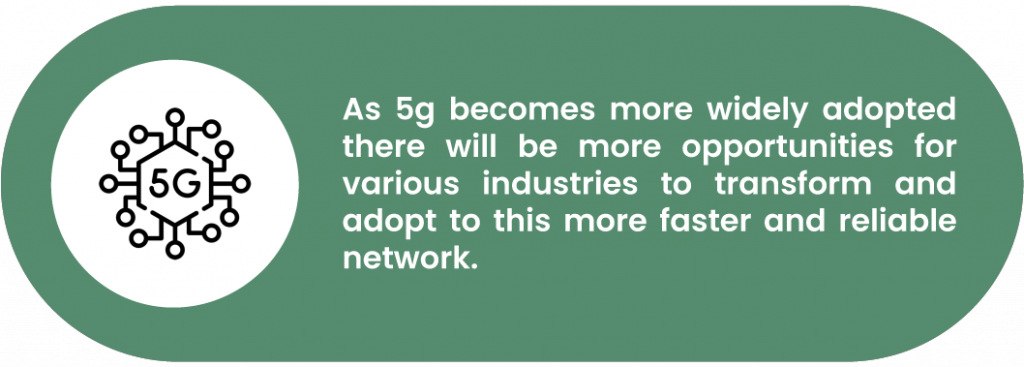
In this context, ODR will not only be an available option for parties involved in disputes, but it will be the appropriate platform for addressing such disputes. Thus, it is evident that the growth of ODR is closely tied to the successful implementation of 5G in India.

